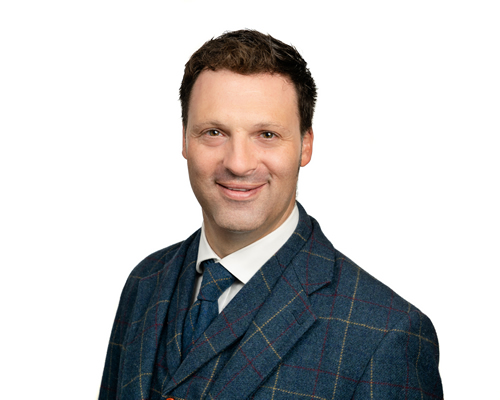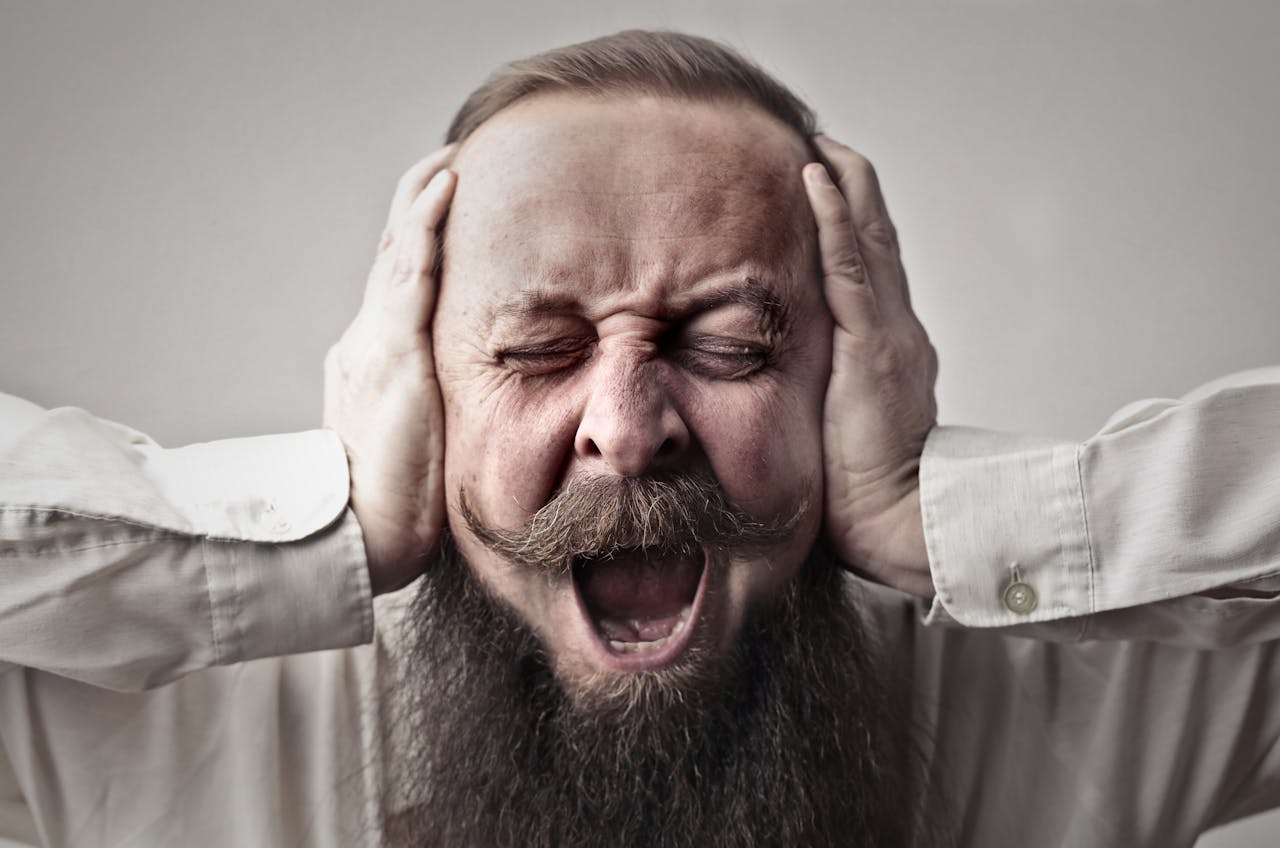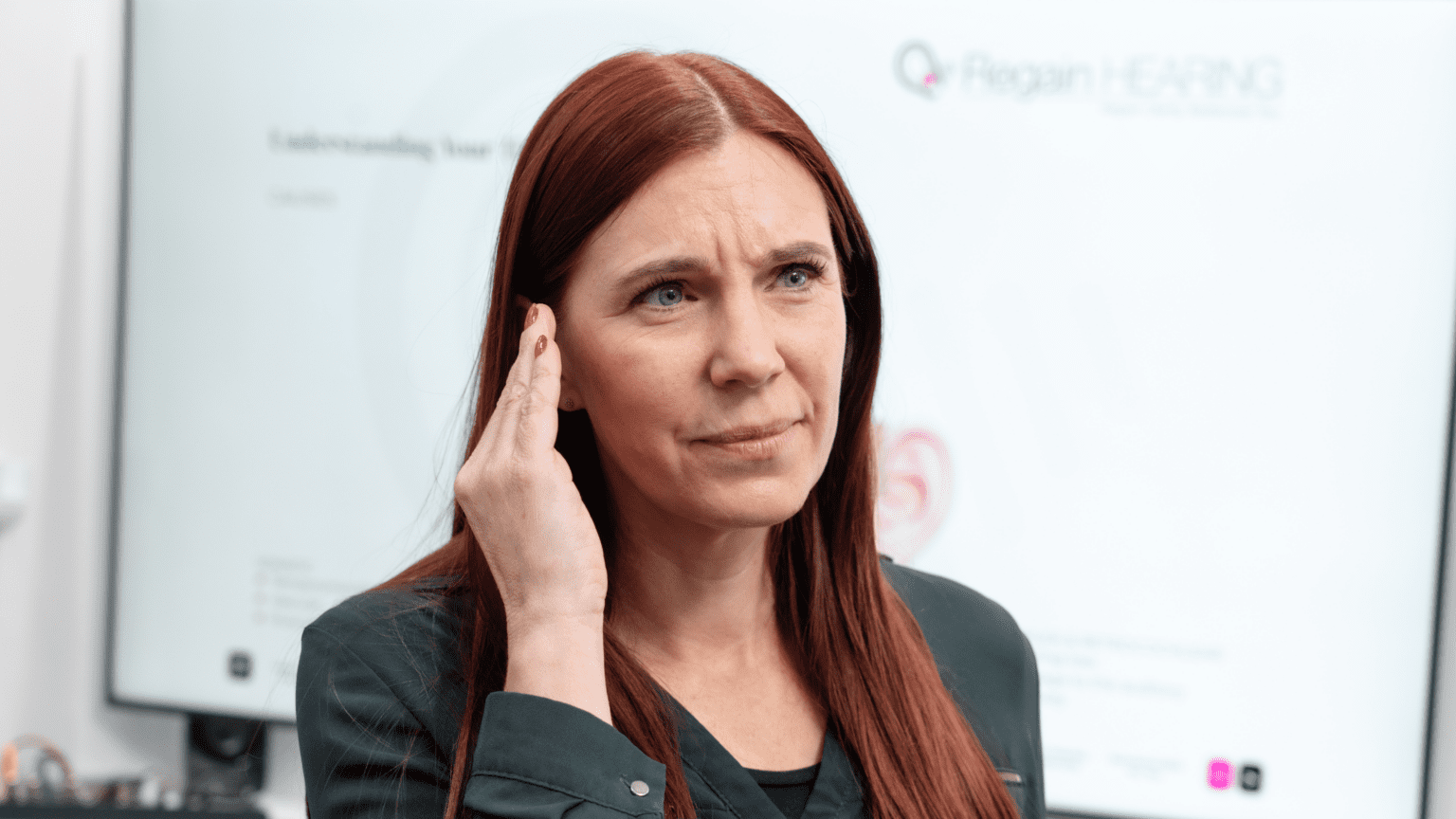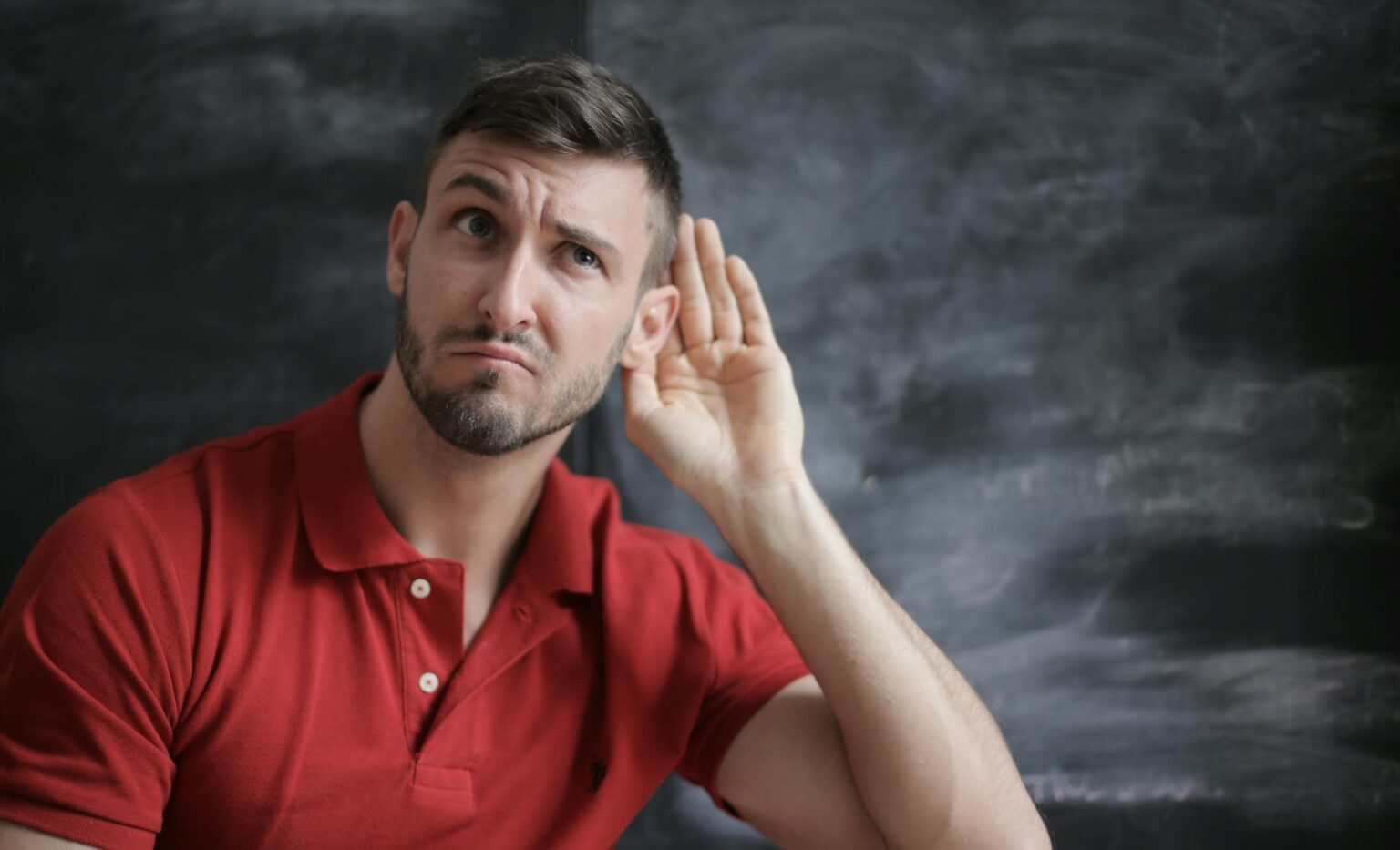Are you experiencing a whooshing sound in your ear? Hearing an unusual sound in one or both ears, such as humming, whooshing, or ringing, can be worrying and distracting and make it hard to focus on conversations, get to sleep, or go about your day – particularly when that sound is persistent. The truth is whooshing sounds in the ear could be dangerous if it’s caused by an underlying health issue.
Whooshing sounds in the ear (or whooshing syndrome) could be a symptom of Pulsatile tinnitus – a rare form of tinnitus. This hearing condition is caused by a vast number of variables and can often be treated or well-managed with several therapies that reduce the impact and make these noises less noticeable.
However, In some cases, there may be a fairly simple remedy to whooshing sounds in your ear, with appropriate testing and checks to establish the cause.
For instance, some people discover that hearing disturbances are linked to an underlying condition or are a side effect of a medication such as aspirin or a course of antibiotics. Whooshing sounds may also be related to a build-up of earwax, and a microsuction treatment can resolve the issue. In this article, we’ll explain what could be causing the whooshing sound.
What Can Cause a Whooshing Sound in the Ear?
As we’ve mentioned, whooshing sounds might be down to many things, from high blood pressure or hypertension to an ear infection, tinnitus or a condition called pulsatile tinnitus:
1. Ear Infections and Whooshing Noises
Ear infections are common and cause swelling or an accumulation of fluid within the eardrum. That leads to continuous noise due to the blockage, which can be treated by resolving the infection, usually taking a few days. Outer ear infections may also require cleaning treatments alongside ear drops, antibiotics, and painkillers.
2. Tinnitus
Tinnitus is often described as feeling as if you can hear your own pulse or heartbeat in your ear, and the NHS recommends you make an urgent appointment with audiology professional should this sound like the noises you can hear. However, in many cases, whooshing noises are something that can be easily addressed. Related reading: What does tinnitus sound like?
3. Tinnitus Symptoms as a Medication Side Effect
Many people experience symptoms of tinnitus when they take medication. Some over-the-counter medicines like nonsteroidal anti-inflammatories (NSAIDs), including ibuprofen may be the culprit, along with diuretics for water retention and antidepressants. A review published by the National Library of Medicine provides more detail about medications that can cause hearing complications.
4. Ear Wax Build up
Even minor causes of whooshing noises, such as a build-up of ear wax, can be distressing, uncomfortable and distracting, and a straightforward, painless procedure can relieve the symptoms very quickly, allowing you to resume your normal routine.
An audiologist can take a look, analyse the reasons why you may be hearing a whooshing sound, and conduct tests and checks to ensure you understand the reason these noises are occurring and how to remedy them.
Related Reading: Why do I have earwax build up all of a sudden?
Other Reasons:
- Blood Flow Changes: Changes in the blood flow in nearby blood vessels can lead to a whooshing sound. This might be due to high blood pressure, an aneurysm, a tumor, or blockages in the artery or vein.
- Ear Canal Changes: Anything that changes the size of the blood vessels or affects the flow of blood in the area can potentially cause pulsatile tinnitus. This includes general changes in the ear canal or surrounding tissues.
- Eustachian Tube Dysfunction: The Eustachian tube helps regulate ear pressure and is located between your middle ear and the back of your nose. Dysfunction or blockage in this tube can lead to sounds that might be perceived as whooshing.
- Malformations of Capillaries: Sometimes, the small blood vessels in the ear may develop abnormally, leading to a condition known as arteriovenous malformation (AVM), which can cause audible noises.
- High Blood Pressure: Elevated blood pressure can increase blood flow, leading to more noticeable sounds like whooshing in the ears.
- Turbulent Blood Flow: Narrowing or kinking in a neck artery (carotid artery) or vein (jugular vein) can cause turbulent blood flow, leading to pulsatile tinnitus.
 What do our Audiologists say?
What do our Audiologists say?
“I cannot overemphasise the importance of getting whooshing sounds in your ear checked out. These sounds, often indicative of pulsatile tinnitus, may be more than just an annoyance; they can be a sign of underlying health issues ranging from changes in blood flow to more serious conditions like arterial abnormalities or hypertension. Early detection and treatment can not only help alleviate the symptoms but, more importantly, address any potential health risks.”
Lindsay Fletcher: (RHAD), (BSHAA), FdA
When Does a Whooshing Noise in the Ear Need Urgent Medical Attention?
As mentioned, a pulsing noise that sounds like your heartbeat could be a sign of pulsatile tinnitus. The reason this symptom requires swift intervention is that although the majority of cases are benign, the repetitive nature of the noise can become debilitating and contribute to serious sleep disorders.
Most cases have an identifiable source, and the condition can sometimes go away without treatment. Still, it is always advisable to make an appointment with your audiologist for an evaluation since some underlying conditions can cause this type of tinnitus and will require treatment, including:
- Hyperthyroidism: also known as an overactive thyroid, where the gland creates an excess thyroid hormone, contributing to fatigue, tremors, digestive problems and sleep issues alongside noises in the ear.
- Anaemia: where a person has a lack of iron or a deficiency in red blood cells, often treated with medications and dietary supplements.
- Intracranial hypertension: a build-up of fluid pressure that can cause pulsatile tinnitus, eye pain, double vision and headaches.
- Glomus tumours: benign but invasive tumours that often grow within the middle ear and create pulsatile tinnitus due to the additional pressure.
Treating the cause of the whooshing sound will prevent it from worsening and alleviate symptoms. In time, the noise will normally stop altogether. However, avoiding or delaying treatment may have the opposite effect, resulting in continued hearing disturbances and potentially partial hearing loss.
How Can I Stop a Whooshing Noise in My Ear?
We often consult with people who have delayed seeking help on the assumption that a whooshing noise will go away – and we’d strongly suggest making an appointment at your nearest practice to ensure you receive the assistance you need straight away.
Although many causes of unusual sounds in your ear may potentially go away by themselves, prolonged exposure to unwanted sounds can interrupt your sleep and cause issues driving or functioning in your workplace.
Issues like a perforated eardrum take around three months to heal, and you may benefit from the reassurance that the noise will resolve itself and advice about managing symptoms in the meantime, including pain relief.
Can the symptoms be alleviated?
Avoiding complete silence may help. Rather than trying to eliminate all background noise, which emphasises the whooshing noise, playing soft music or white noise can act as a distraction and reduce your focus on the sound.
If we discover that the noises are linked to tinnitus, there are also many possible treatments and therapies, from sound therapy to cognitive behavioural therapy (CBT), Tinnitus Retraining Therapy (TRT) and varied medications.
For more information, please visit our previous guide, Does Tinnitus Go Away.
This article explains the varied types of tinnitus, treatments and therapies, and the assessment process using the respected Tinnitus Handicap Inventory (THI) to grade the severity of the condition and create a personalised action plan.
You are also welcome to contact any of the Regain Hearing practices at your convenience to book a hearing loss consultation, advising us of the branch you would prefer to attend. If you’re based in London visit us at our Croydon or South London Hearing Clinic or our Gravesend Hearing Clinic. We also offer ear wax removal in Maidstone and at our Chatham hearing clinic.








